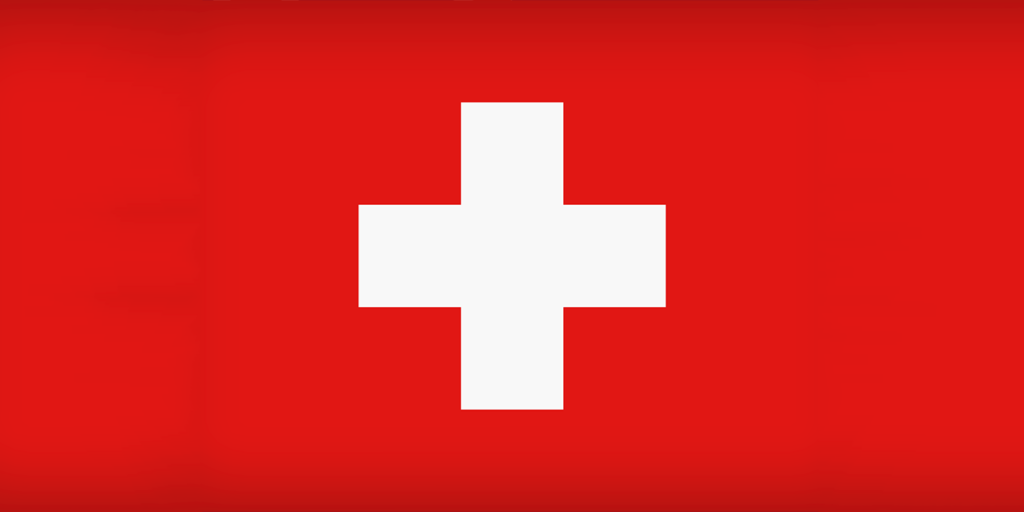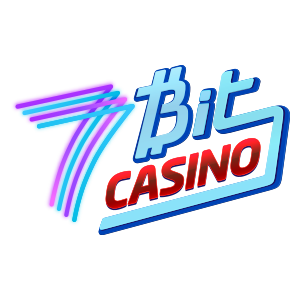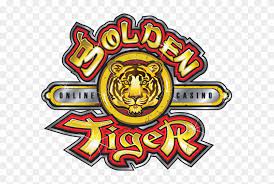
Switzerland Gambling Regulations
Table of contents
Gambling Regulations for Online Casinos in Switzerland
If you know three things about Switzerland, you know that it's the only neutral country in Europe, it houses some of the world's biggest banks, and the army makes a mean pocket knife. However, as of 2019, you can add “online gambling” to that list as well (among other things).
Yes, you can now gamble online in Switzerland. Gambling at land-based casinos and slot machines has been legal since 1993, but it took the government a long time to recognize the value of online casinos. Even though the country is really late to the game, the changes have already had some significant impacts.
So, with that in mind, let's look at the gambling regulations for online casinos in Switzerland.
A Brief History of Online Gambling in Switzerland
For much of its history, Switzerland has had a negative view of gambling. During the Middle Ages, the French reformer John Calvin spoke against betting large sums of gold and silver on games of chance. Smaller wagers, however, seemed to be okay in his mind. A big reason why the Swiss detested gambling is that they thought it was immoral and poisonous to society. They felt that gambling led to laziness and inactivity, and as individuals lost fortunes on games, the results seemed to validate those fears.
As with most other countries in the 1800s, lotteries came to Switzerland as a way to raise money and offer games of chance to the public. Initially, the government gave the green light on charitable lotteries but tsk-tsked the idea of for-profit games. Unfortunately, even with a ban on all gambling in 1874, the various cantons (states) didn't enforce the rules cohesively. Some cantons would allow for-profit lotteries and similar games, while others strictly forbade them.
Oddly enough, the first casino opened in Switzerland in 1881, the Casinò Barrière de Montreux on the shores of Lake Geneva. Its existence illustrates the messy state of gambling in the country at the time.
By the 1920s, the Swiss government got its act together. Specifically, the Federal Act on Lotteries and Commercial Betting. This law allowed lotteries of all kinds on the canton level but stipulated that the majority of the profits go toward the public good for that state. No national lotteries were allowed at the time.
Another act in 1929 expanded gambling operations to casinos in specific cantons as a way of promoting tourism. Multiple casinos opened after the act went through. However, it wasn't until 1993 that the government finally opened the doors to full-on legalized gambling within the whole country.
Unfortunately, as gambling spreads, so does addiction. At first, the government was primarily concerned with taxation and revenue, but by 1998, lawmakers had to address the problem gambling elephant in the room. A new amendment was passed to provide more gambling addiction resources in the country and to segment casinos into two types.
The first type is a no-limit casino, which would be allowed in specific cantons. The second type referred to casinos with a maximum of 150 machines. Another provision of this amendment required all casino operators to have a system to recognize problem gambling and address it.
The final provision of the 1998 amendment was to outlaw online casinos and their advertisements. Online gambling had been finding its legs at the end of the 20th century, but the Swiss had no interest in legalizing or regulating the industry. So, Swiss players had to bet at unlicensed offshore sites, making the country a “gray” market.
Finally, 20 years later, the Swiss government changed course and legalized online casinos with the passage of the Money Gaming Act. Now, the Swiss Federal Gaming Board issues online licenses to existing casinos. The MGA even goes a step further and tries to block access to unlicensed sites. While it's tricky to enforce that provision, it further illustrates how much the market has changed over the years.
Now, the government wants to make sure that online gambling is safe for players and operators, as well as collect that sweet tax money. Comparatively speaking, Switzerland has one of the highest tax rates for casinos in Europe.
Here are some important dates in the history of online gambling in Switzerland.
- 1874 – All gambling is banned in the country.
- 1881 – The first Swiss casino, the Casinò Barrière de Montreux, opens on Lake Geneva.
- 1923 – Canton-level lotteries are approved as long as proceeds go toward the public good.
- 1929 – Land-based casinos are allowed in specific cantons.
- 1993 – All land-based gambling is legalized.
- 1998 – New amendments to the 1993 law are passed, which enforce rules surrounding problem gambling, split casinos into two types, and prohibit online gaming.
- 2018 – The Money Gaming Act is passed, enabling the Swiss government to issue licenses to online casinos. The MGA also seeks to prohibit unlicensed operators.
Is Online Gambling Legal in Switzerland?
Yes, all forms of online gambling are now legal in Switzerland, making it a “white” market. The Money Gaming Act still classifies operators into two categories: Class A casinos having no-limit betting and Class B casinos offering smaller games and payouts.
One thing to note is that Switzerland does have a monopoly on online lottery games. The MGA specifically states that no licenses will be granted to foreign operators for lottery or sports betting. Instead, only Swisslos and Loterie Romande (the state-run entities) will be given permission.
Currently, games are overseen by two primary regulatory bodies (more on those later), the Swiss Federal Gaming Board and Comlot. Casino games and poker fall to the SFGB, while bingos, sports betting, and lotteries fall to Comlot.
The new law is quite strict about who can get licensed, and the government seems intent on cracking down on unlicensed online casinos. So, even though the market is regulated, Swiss players technically have a more limited selection, at least until new licenses are issued.
Gambling Regulations for Online Casinos Switzerland
Since the Money Gaming Act is the primary regulation for online casinos in the country, let's take a closer look at this new law and how it works.
The primary objectives of the MGA were to combat fraudulent and criminal behavior, as well as protect minors and other vulnerable groups from exploitation. The act's other aim was to create a system of tight regulation for online casinos and gaming.
For the first six years (2019 to 2024), only current land-based casinos can extend their licenses to offer online gambling. That provision means that any offshore sites have to partner with one of these casinos to promote themselves in the country. Otherwise, all foreign-based online casinos are prohibited. The MGA allows the government to restrict access to offshore sites as well. After 2024, offshore websites can apply for individual licenses.
The MGA classifies gambling into various categories, including:
- Casino Gaming (including table games and poker)
- Bingo
- Lotteries
- Betting (including sports betting and horse racing)
As with the old 1993 law, the MGA puts casinos into two classes. Class A casinos are larger and have no limits on the number of games allowed or maximum bets. Class B casinos are smaller and have a strict limit of 150 machines and a handful of table games. Since only land-based casinos can extend their game options online, this distinction affects online gambling. For example, if a Class B casino wants to set up a website, it has to stick to the same limitations as it follows for in-person gaming.
One new provision of the law allows for small-scale poker tournaments. Organizers can apply for a canton license to host a game outside a casino. Each canton sets its own rules surrounding these tournaments, so the regulations can change from one state to the next. That said, since online gambling is now subject to tighter restrictions, players don't have access to as many poker sites as they did before.
When it comes to sports betting, Swisslos and Loterie Romande are the only options for placing bets online. All sports betting falls under their supervision, including horse racing, dog racing, sporting events, and other games. However, players can place bets locally at racetracks and bookmakers within the country, thanks to the new law.
Bingo and lotteries are also monopolized, with Swisslos and Loterie Romande being the only games in town. They offer instant win, Keno, and other lottery games. As far as small, charitable lotteries or bingo nights, those fall into cantonal regulation, so organizers have to apply for a local license.
Gambling Authorities for Online Gaming in Switzerland
Two primary regulatory bodies oversee gambling in Switzerland – The Swiss Federal Gaming Board (SFGB) and Comlot. Here is a breakdown of each agency.
Swiss Federal Gaming Board
The SFGB is responsible for managing all land-based casinos in the country. The Gaming Board is in charge of issuing licenses for these casinos as they expand their options online. As of 2020, seven casinos had applied for domain licenses, including the Grand Casino Kursaal Bern and the Casino Du Lac. The rest of the 19 land-based casinos will likely start offering their games online in the coming years.
As we mentioned, offshore sites are prohibited from allowing Swiss players for the first six years of the MGA. This provision is designed to help local casinos corner the market and ensure that more tax revenue stays within the country. That said, foreign operators can establish partnerships with Swiss casinos to help them deliver a better online experience. We're interested to see if any established igaming sites can gain a foothold within Switzerland in the next few years.
Gespa (Formerly Comlot)
As of January 2021, Comlot has now rebranded as Gespa. While the SFGB monitors casinos and all the games they offer (i.e., slots, card games, poker), Gespa oversees all lotteries, bingo, and sports betting within the country. Since Swisslos and Loterie Romande are the only companies that can offer these games, for now, Gespa is really just in charge of them.
Another critical piece of Gespa's authority is updating and managing the country's “blacklist.” As we mentioned, Switzerland is trying to ban all unlicensed online casinos from operating within the country, meaning that they have their IP addresses blocked. The blacklist consists of offshore sites that have already violated the new law. Around 25 sites have been banned so far, with more likely to fill it out further in the coming years.
In addition to managing the blacklist, Gespa also monitors sports and racing matches to ensure no impropriety. The agency will investigate any fraud or match-fixing claims since that could ruin the integrity of sports betting.
Finally, Gespa is responsible for promoting problem gambling resources, both online and in-person.
Foreign Regulatory Authorities
While Gespa tries desperately to block offshore casinos, the fact is that it's hard to enforce someone's actions online. Many Swiss players may visit these websites regardless of the new law, especially because the current gaming options are so limited.
The Swiss government doesn't criminalize this behavior, but it strongly discourages it. That said, if Swiss players bet at online casinos with licenses from other commissions around the world, they can play confidently. Other regulatory bodies in Europe include:
- UK Gaming Commission
- Malta Gaming Authority
- Gibraltar Regulatory Authority
- Alderney Gambling Commission
Gambling Addiction Resources in Switzerland
Since gambling was legalized in 1993, the government has provided numerous resources for problem gamblers. Now that online gambling is legal, more sites and helplines have popped up. Here is an overview of the options available for gambling addicts in Switzerland.
- Swisscasinos – This website offers a comprehensive list of gambling treatment centers, clinics, and other informational sites.
- Addiction Switzerland – This private organization aims to curb problem gambling in the country. The site offers details on how to tell if you or someone you know has an addiction and what to do about it.
- Careplay – This site offers information on problem gambling and enables players to self-ban online. Individuals can also talk with therapists if necessary.







